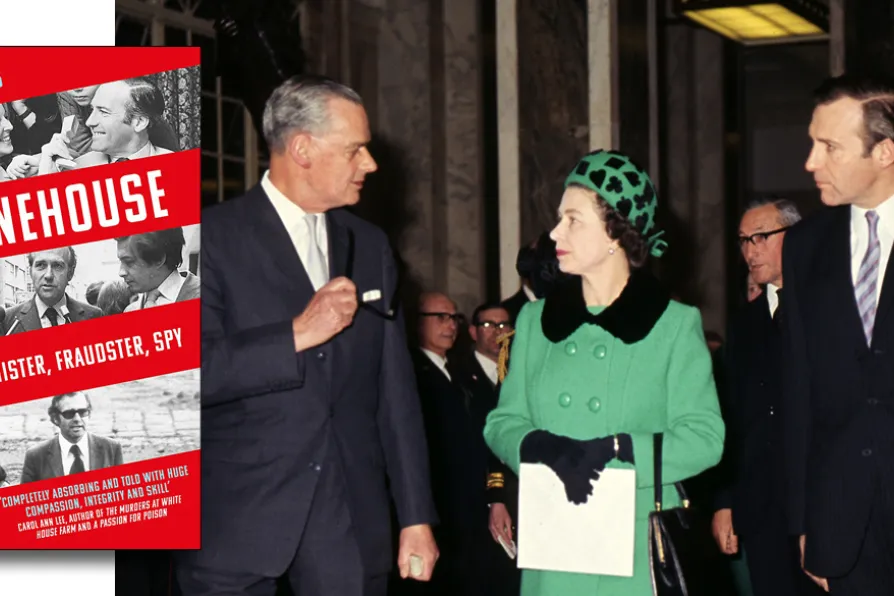JOHN GREEN, MARIA DUARTE and ANGUS REID review Fukushima: A Nuclear Nightmare, Man on the Run, If I Had Legs I’d Kick You, and Cold Storage

 PRIDE BEFORE FALL: John Stonehouse (on the right) with the Queen at the opening of the National Postal Museum
PRIDE BEFORE FALL: John Stonehouse (on the right) with the Queen at the opening of the National Postal Museum
FROM humble beginnings, John Stonehouse became a rising star in the Labour Party and a cabinet minister in Harold Wilson’s 1964 government, only to be brought crashing down as a result of his own hubris.
His working-class family, active in the Co-operative movement, were staunch socialists and their eldest son John also became a Co-operative activist. After a short spell in the RAF during the war, he gained a degree in economics and politics at LSE.
In 1957, aged 32, he became MP for Wednesbury, the youngest MP at the time and in 1968 was appointed postmaster general and joined Wilson’s cabinet. A tall and personable man, he was well- liked and respected in the Labour Party and, with his soft-left politics, was seen by a number of pundits as a potential prime minister.

JOHN GREEN has doubts about the efficacy of the Freedom of Information Act, once trumpeted by Tony Blair

Research shows Farage mainly gets rebel voters from the Tory base and Labour loses voters to the Greens and Lib Dems — but this doesn’t mean the danger from the right isn’t real, explains historian KEITH FLETT











